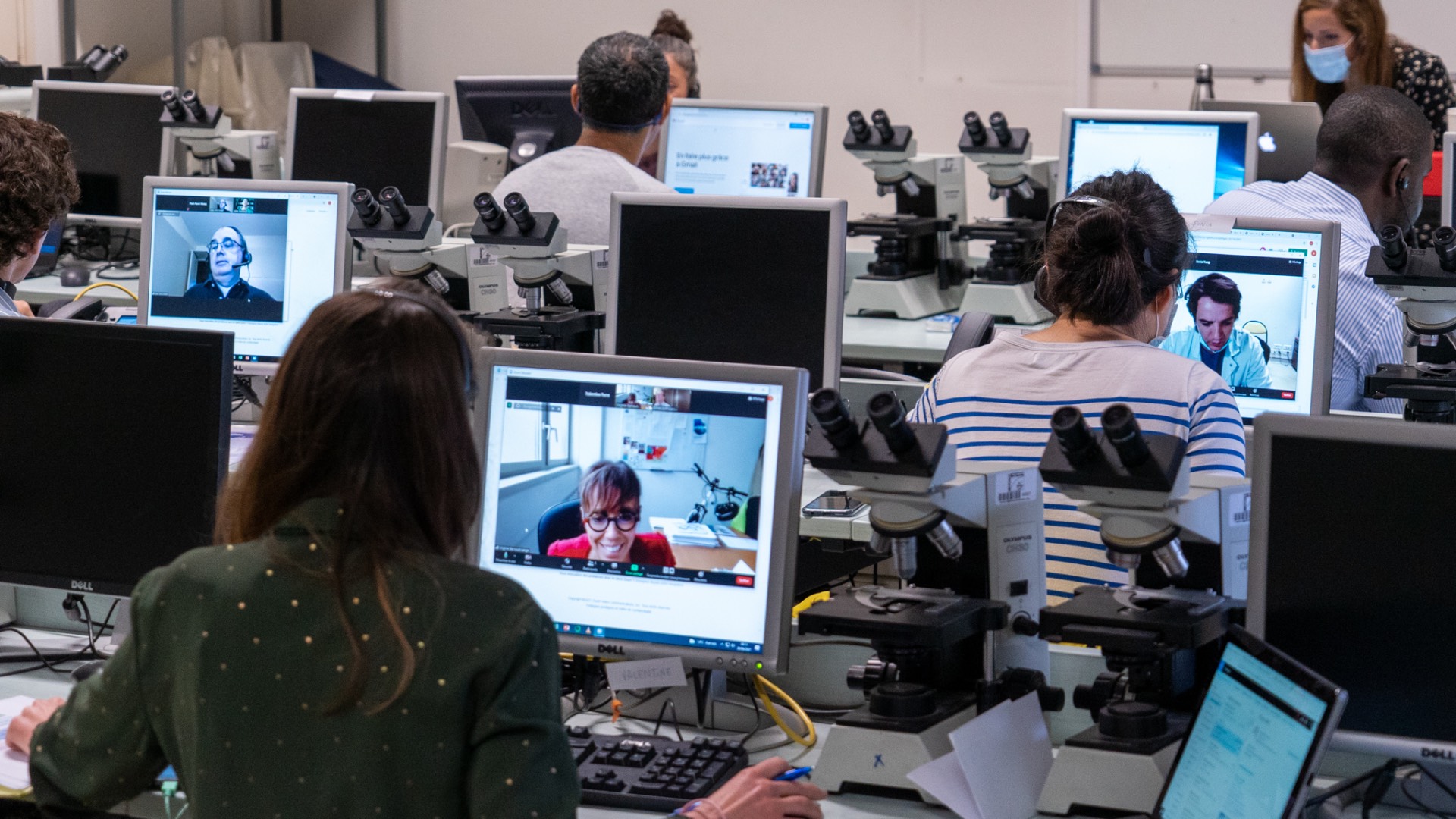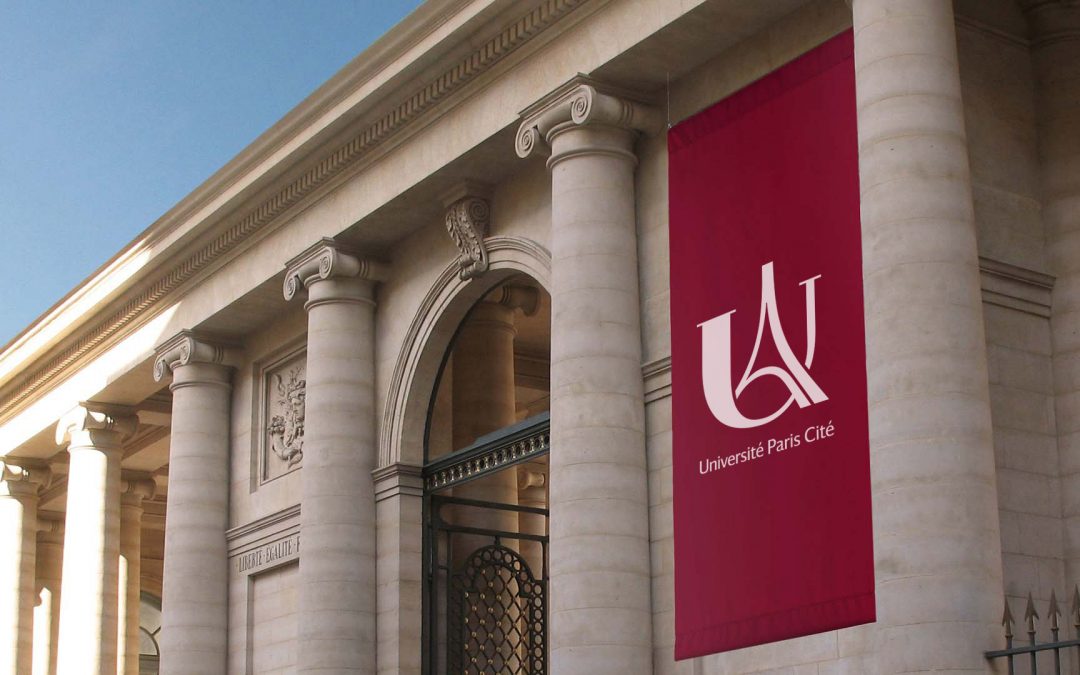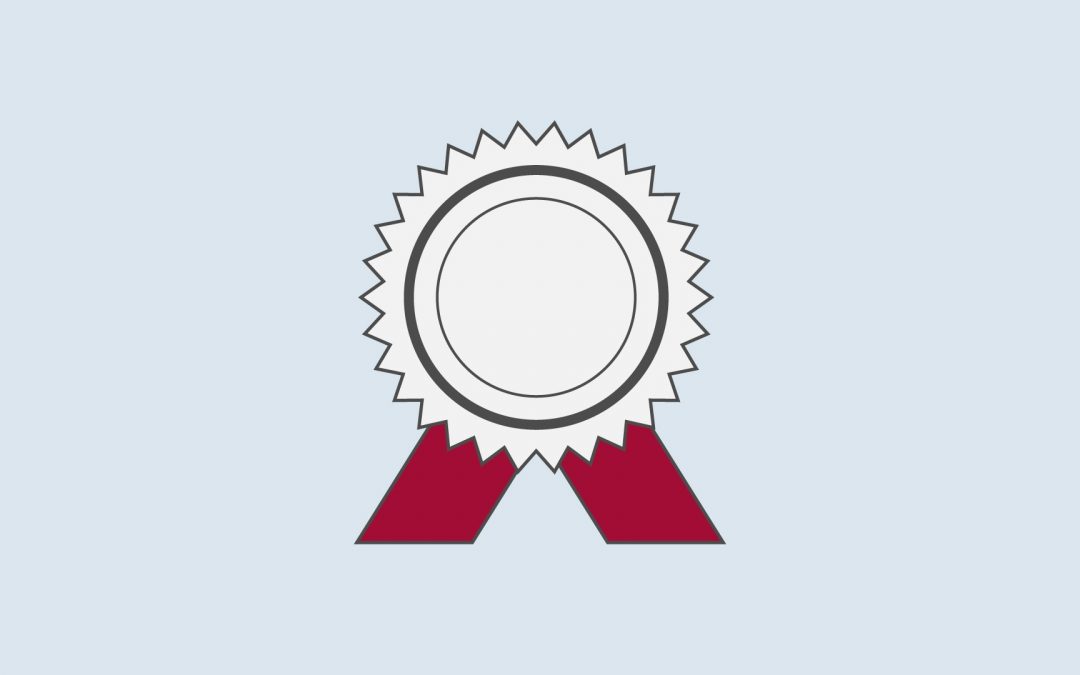ECOS, An Innovative, International Training Practice for Medical Students

Supervision room for remote ECOSs at Université Paris Cité
Initiated to put skills and the doctor-patient relationship at the center of student training and evaluation, “ECOS” or “Examen Clinique Objectif et Structuré” is a situational exercise that assesses the skills and knowledge of medical students. This method is part of the reform of the 2nd cycle of medical studies formalized in December 2021, by the Ministry of Higher Education, Research and Innovation (MESRI).
A national test, simultaneously with all medical departments will be organised in 2024, for sixth year students. This test will enable the students to pass to the third cycle and will count towards the student’s choice of their specialty and training subdivision. In order to set up dedicated training sessions, Université Paris Cité’s Health Faculty has done a significant amount of work at the educational, technical and logistical levels.
Innovative Training for Medical Students
A patient screams in pain as he is seen seen by a doctor. He has a broken leg and can’t explain to the doctor what happened. Except that here the doctor is a student in the middle of an examination and the patient is an actor. At their side is a teacher, in charge of evaluating the course of the consultation and the handling of the patient. This is just an example of situational exercise to illustrate the unique innovative training medical students have been doing as part of the ECOS method.
In Since 2020, more than 40 teachers have been producing the ECOS topics. 11 themes are covered and a selection committee validates the questions. In addition to this pedagogical work, there are functional and technical aspects: how to evaluate more than 800 students, mobilize more than 300 teachers as well as the administrative teams in over a given time? A student sees 5 “patients” during the exam. This represents more than 4,000 consultations over half a day, two sites of the Medical Department and its libraries (more than 150 rooms).
A working group was set up to give students the benefit of real-life exercises, made up of teachers, educational engineers, IT services and the school administration. A highly dedicated group had to test many technical and pedagogical methods to deliver a project constantly evolving.
The global pandemic brought organisational challenges to the project. It was required to replicate the conditions of physical examinations, to create an application, to find funds and a new organisation. The working group had to adapt and change the evaluation tool used by the teachers. Through the support of a French EdTech* start-up, this tool now makes it possible to dematerialize the evaluation grid, to follow the exam in real time and to centralize the results. In the end, the application could make it possible to assess the progress of the exam, evaluate the questions, the wording, and the appropriateness of the scales according to the needs identified by the teachers, in such a way to continually improve the training for the students.
A Pedagogical Innovation on a European scale
This work around ECOS, carried out by the Medical Department, has also given rise to a large-scale international project within the Faculty of Health at Université Paris Cité. In October, the Faculty and its departments won a call for ERASMUS+ projects, Dominos, and with it 286 172€ in funding. In partnership with 5 European universities, this 3-year project aims to facilitate the organisation of ECOS training sessions by offering several digital tools (serious games, digital resources, organization of European training sessions on Zoom, evaluation protocol, etc.).
The expertise of Université Paris Cité in digital ECOSs is now available to other French universities and to members of the Circle U. European University Alliance.
While waiting for the national ECOSs in 2024, training sessions or validating exams will continue to be given, mainly in class but also remotely, to ensure excellent training for our health students.
* state-of-the-art technology specialised in education
Read more

No relationship between Université Paris Cité and the private company operating under the name City University of Paris
Université Paris Cité discovered that a private higher education establishment initially called Intelligest has recently changed its company name for ‘City University of Paris’. Université Paris Cité points out that it has no links whatsoever (association,...
read more
Absence de lien entre l’Université Paris Cité et la société privée d’enseignement communiquant sous le nom City University of Paris
L’Université Paris Cité a découvert qu’une société d’enseignement privé initialement dénommée Intelligest avait récemment adopté la dénomination « City University of Paris » pour proposer des services d’enseignement supérieur à distance. L’Université Paris Cité...
read more
L’Université Paris Cité obtient la Labellisation HRS4R
L’Université Paris Cité vient de franchir une étape importante en obtenant la labellisation HR Excellence in Research (HRS4R), une reconnaissance décernée par la Commission Européenne. Cette distinction témoigne de l’engagement de l’établissement à promouvoir un...
read more
Un projet solidaire ? Participez au concours Object’if Solidarité !
Vous êtes porteuse ou porteur d’un projet solidaire ou socialement innovant qui vise à améliorer le bien-être de tous ? Vous rêvez d’un coup de pouce pour le développer ? Alors participez au concours Object’if Solidarité qui soutient et récompense les projets...
read more